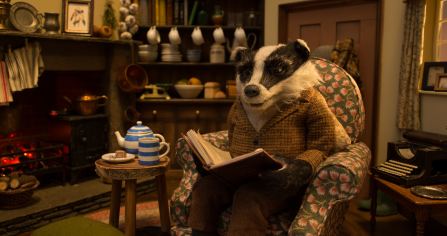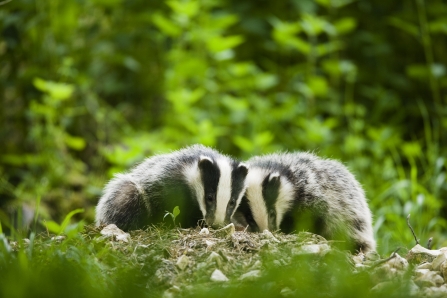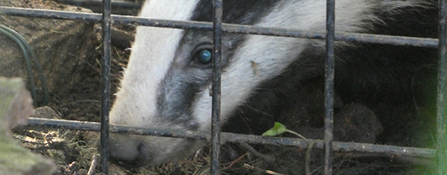
A majestic yet misunderstood and misrepresented mammal
Jon Hawkins - Surrey Hills Photography

Grahame’s portrayal is probably the best known and it is at least an improvement on how some would describe these amazingly adaptable and family oriented creatures.
For some, the natural world seems to need heroes and villains, as if it were a novel or a screenplay. Sadly, the badger seems all too often to be cast as the villain.
For one of our few large native mammals to have been on the receiving end of persecution for centuries and subjected to all manner of horrors, from being forced to fight with dogs (yes, this still goes on!) to gassing and shooting to still be cast in a negative light by many well into the 21st century seems to underline our society’s disconnect with nature.
We currently stand on the brink of climate and ecological crises. With over 40% of our wild species in decline I find it troubling that a surprising number of people think the answer to reversing the declines in everything from the numbers of ground nesting birds to hedgehogs lies in efforts to kill more badgers.

Elliot Neep NeepImages.com
Most people have never seen a badger up close and fewer still have seen them in their element, foraging for food or had the pleasure of watching a group of cubs play fighting. For most their only direct experience of badgers is seeing them lying dead at the side of the road yet many see fit to blame them for a long list of misdemeanors affecting other native wildlife and call for yet more to be killed. For a nation of nature lovers we do seem to want to be able to pick and choose what deserves our support or even sympathy.
When it comes to the species’ links to the spread of bovine tuberculosis in cattle, the trope of the badger as a problem animal now puts the species’ future in many parts of the UK in jeopardy.
As is the case with many a good narrative there is undoubtedly a grain of truth in the negative portrayals of badgers, in some cases, more than a grain but if you stand back and look at the bigger picture in pretty much every case the badgers’ culpability is less than some detractors would have us believe.
Yes badgers will eat pretty much anything they can get the claws on or teeth into – they are omnivores after all but the bulk of the diet is made up of earthworms. Perhaps we should also blame badgers for the decline in our soils too!
Whilst a badger will snaffle a nest of bird's eggs if opportunity presents or tackle a hedgehog if hungry, what they are not are specialist hunters with a lust for blood.
Perhaps the twisted view of these wonderful creatures has been skewed by centuries of persecution and our limited first-hand experience of them. Perhaps this makes it easier to accept the negative narrative. Has the fact that we most often see them dead and bloated at the roadside hardened our senses to such a level that many are unable to see them as a valuable part of our natural world?
A huge percentage of our native creatures are under threat as a result of habitat destruction, pollution and climate change so to ignore this complex and frankly scary set of problems and lay the blame for the plight of a host of species at the door of Mr Badger is misguided. But perhaps this deflection suggests that we simply don’t want to accept the alternatives and lay more of the blame at our own door.
In the same way that we must accept that badgers do impact on other species it is true to say that badgers can and do spread bovine tuberculosis, but we must keep the scale of the problem in perspective. The main cause of infection in cattle herds, and the resultant distress and financial hardship for farmers, comes from cattle to cattle transmission.
Sadly policy makers do not always allow facts or good science to always drive policy and it is with great regret that alongside sister Wildlife Trusts we’ve launched an urgent campaign to prevent a massive expansion of badger culling across England.

Having invested hugely the cheaper, more humane alternative of vaccinating badgers, we are appalled that vaccinated badgers may now be shot if we cannot prevent the widening of a cull.
Time and time again science has failed to prove the case for culling as the central strategy for tackling this destructive disease and yet again we find ourselves fighting unjustified expansion and have only weeks to make our case.
Take action!
Thank you if you have already contacted your MP to stop the cull.
If not, then there is a limited window of opportunity to do so, so please consider checking out the easy to follow web page to help you.

